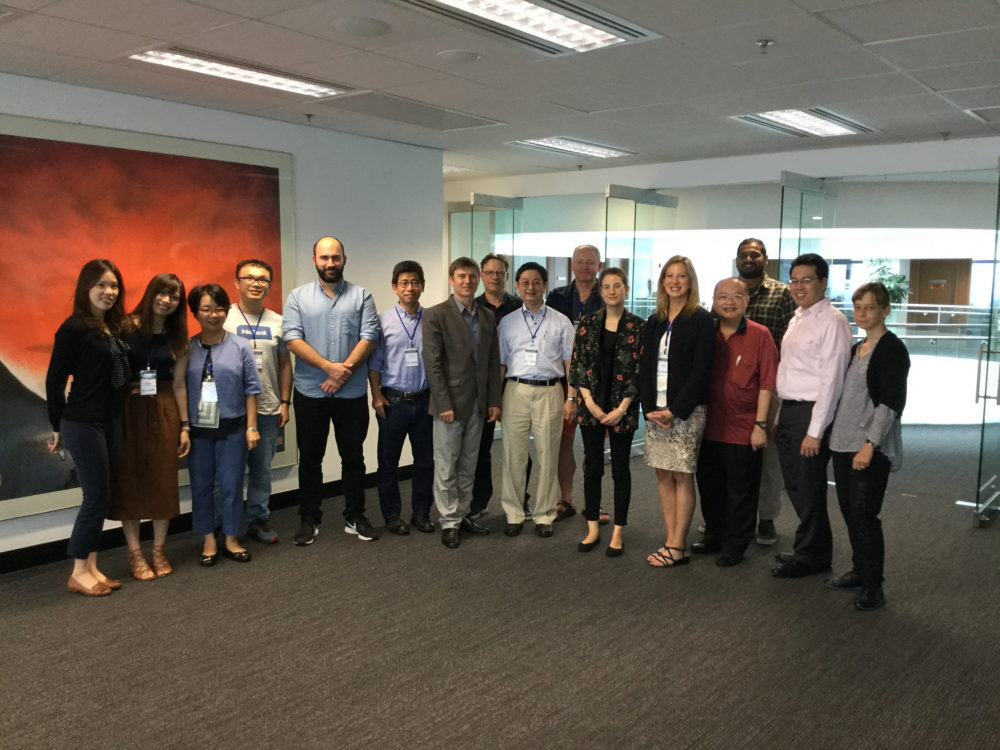The 2nd meeting of the APRU-Google project, “AI for Everyone: Benefiting from and Building Trust in the Technology,” in collaboration with Keio University and HKUST Big Data Institute (BDI), was concluded on September 1 at HKUST. Co-chaired by AI-experts professors Jiro Kokuryo (Keio) and Toby Walsh (UNSW Sydney), the review of twelve AI-related working papers, focusing on technology awareness, access, governance and development, was the focal point of discussions at the two-day event.
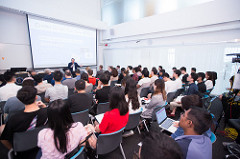
Themed “AI4Every1,” the project workshop was intended to engage a wider audience in the in-depth discussions on issues of AI. The project participants actively discussed how to establish trust in technology and amplify human intelligence on the use of AI to beneficial ends.
“Everyone wants to get into AI these days. Undoubtedly, AI will change people’s life. It’s really glad to see so many experts from this project coming to HKUST to share with us the applications and impacts of AI to our society,” said Professor Tim Cheng on August 31, Day1 of the event. More than 70 participants, including HKUST faculties and postgraduate students, were in attendance, exchanging AI-related insights with experts and scholars from across the Pacific Rim.
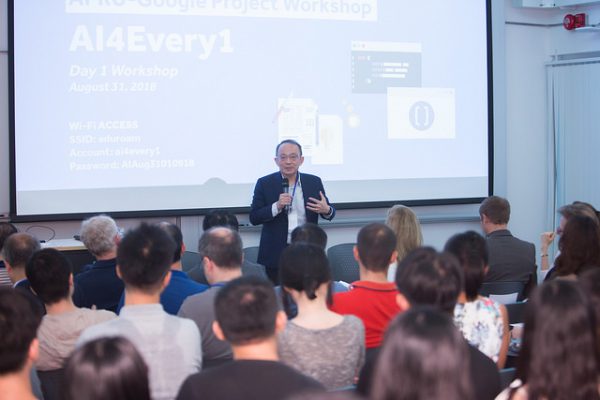
In his welcoming remarks, Professor Jiro Kokuryo reinstated the importance of bridging the gap between technology and society. “The technology is changing very quickly, so people will probably need to be mindful and aware,” said Prof Jiro. “We will try very hard to continue organizing great research.”
Titled, AI and Ethics,Professor Toby Walsh’s keynote address highlighted some of the ethical challenges and lessons learned from recent AI-related controversies and developments that many of the global tech giants were embroiled in. To further the conversation on AI and ethics, Director of HKUST Center for AI Research (CAIRE), Professor Pascale Fung, led a Q & A session, answering questions posed by the audience, in addition to sharing of her thoughts on AI development ethics and governance issues.
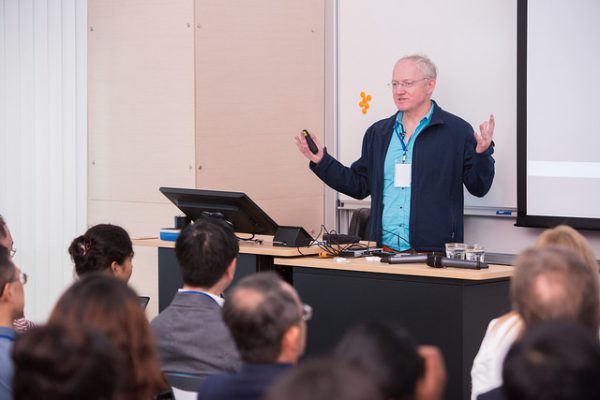
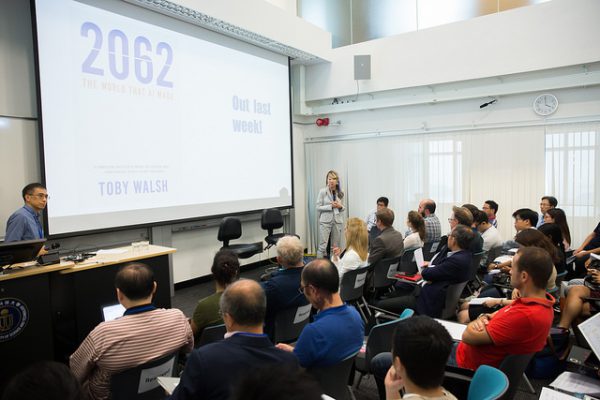
As the Associate Director of BDI, Professor Yang Wang, along with Professor Jiro Kokuryo initiated the topic of AI’s impact on society. The overview presentation on project members’ policy paper—its key messages and future ideas—informed the audience on the latest trends in AI development and governance.
In the closing remarks of Day 1, Professor Dit-Yan Yeung, Acting Head & Professor, Department of Computer Science and Engineering of HKUST, emphasized on the necessity of innovative thinking, because it was important to the development of cutting-edge technologies like AI.
AI, the new frontier technology divide, should be the primary concern for the Asia-Pacific region. APRU’s Digital Economy program estimates that, by 2020, 20 billion devices will be connected to each other and the size of the digital economy in 2025 will be worth $37 billion.
Day 2 of the project face-to-face meeting was allocated to presentation of the twelve working papers by project members. From the danger of treating robots as moral police when they clearly lacked the quality of being “moral patient” that could be subjected to suffering from breach of morals to the development of AI certification system –a framework—for increasing AI trustworthiness; and from AI governance, including AI-ready education and black-box decision-making, to issues, such as criminal law, military robots and electoral systems, project participants from APRU’s member universities in Russia, Australia, China, Hong Kong, Japan, Singapore, Mexico and Chile offered analysis and solutions to some of the 21st century AI-related challenges.
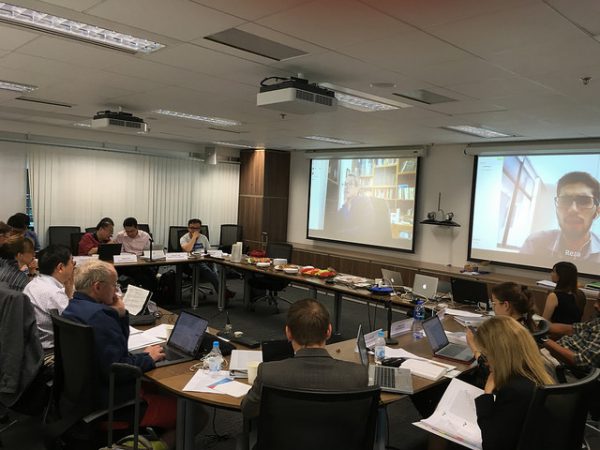
Findings from all working papers together with policy recommendations are scheduled to be published by end of December 2018 to governments and civil society with an aim to contribute policy foresight and provide policy actors with the latest knowledge to guide decision making. APRU is partnering with both The Pacific Forum Corporation Council (PECC) and Elservier on the dissemination plans of the project outputs.
APRU’s policy partnerships with Google act as a catalyst to support the development of AI governance across Asia-Pacific region. Led by AI experts, along with collaborators from 11 leading research universities in APRU’s networks, first meeting of “AI for Everyone” was held on Keio University’s Mita campus on Dec. 1, 2017. This jointly-led project, though still in its infancy, looks at issues of AI governance, its impact on the Asia Pacific, and how society can maximize AI-tech’s potential for an equitable future.
Click here to see meeting photos.
Click here to view highlights of the meeting by the Big Data Institute.

